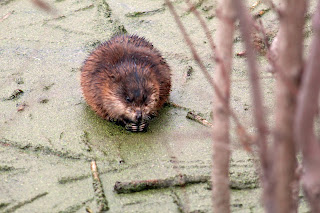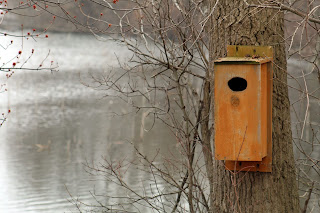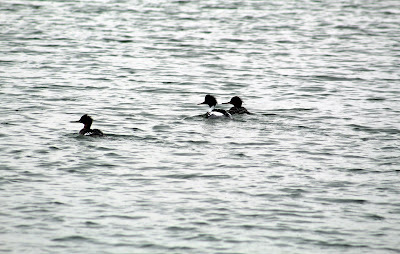We're still on lock-down, and while I don't want to downplay the economic devastation this is wreaking, some people like to throw around totalitarian state metaphors. Please, talk to someone who lived under the Soviet regime or other dictatorial states and then tell us how this is like that.
Anyway, we are free to enjoy the outdoors.
Given that this is spring, much emerges: plant life, insects and amphibians, and the call of reproduction.
Frogs and toads call (when the weather isn't too cold) and birds defend territories and put on displays of virility.
This group of photos is from 3 April 2020 at Sterling State Park, which is Michigan's only state park on Lake Erie.
Get outside before you miss the sounds, the smells of spring. And the ephemerals...don't miss their show.
Sterling State Park is part of a delta for Lake Erie so there are plenty of waterfowl, like the scaups above.
 |
| Last year's investment |
 |
| The American robin is so common I don't think I've ever snapped a photo of one. I remedied that. |
 |
| Where's there is a sizable wetland, there are probably muskrats. It was still Lent when I spotted this critter, and given that it was a Friday, it counted as seafood, believe it or not. Sometime in the 18th or 19th century, Catholic bishops classified this mammal as seafood. Probably because they were plentiful and aquatic. |
 |
| How much wood can a wood duck duck if a wood duck could duck wood? |
 |
| Male and female mergansers |











Comments